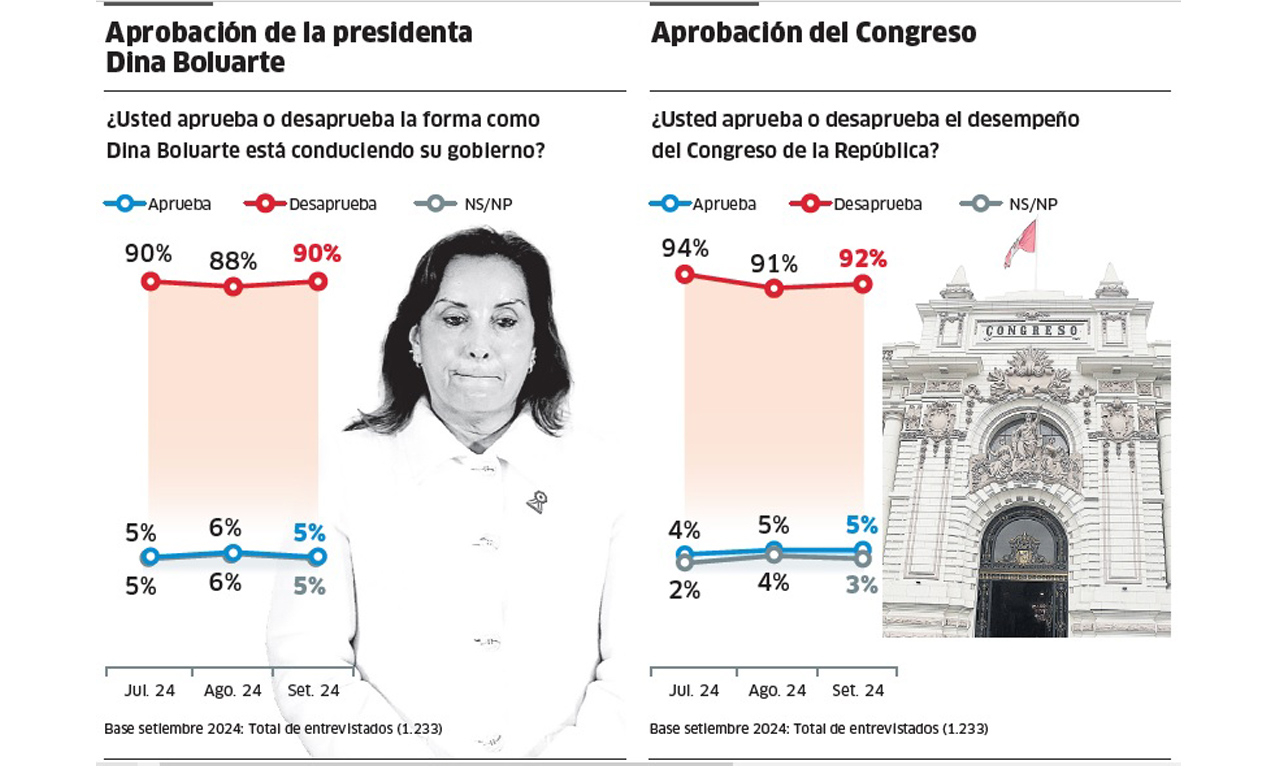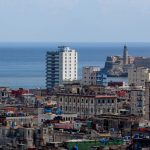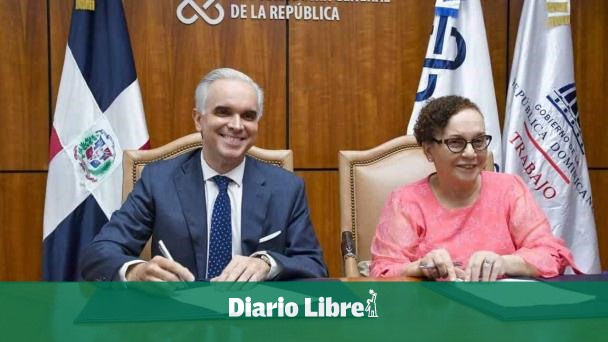The president Dina Boluarte and the Congress remain on the floor in the evaluation of citizens while the majority warns of the influence of Fujimorism in the country’s politics, as shown by the recent national representation survey of the Institute of Peruvian Studies (IEP)an investigation carried out with the newspaper La República.
The study consulted the population from Friday, September 20 to Wednesday, September 25 and has margins of error of 2.8 points above and below each result to represent the reality of the country.
Approximately 90% of Peruvians disapprove of the way Boluarte is running his government. That is, nine out of 10 compatriots agree with this disqualification of the president.
Barely 5% of compatriots approve of the head of state’s leadership of the Executive: a minuscule support.
Likewise, 92% of citizens disapprove of the performance of Congress. Almost like with Boluarte: they share similar levels of disapproval.
Only 5% approve of the work of Parliament. Once again, minimal support similar to that of the president.
This situation of Boluarte and Parliament has persisted since March, without evidence of improvement, but last year both were widely disapproved.
Fujimorism
The majority in the country warns of the influence of Fujimorism in Peruvian politics. 52% think that this is a lot and 19% that it is something. That is, seven out of 10 Peruvians perceive considerable influence of the ‘oranges’ in our political life, roughly. Furthermore, a minority 13% of compatriots think that this influence is little.
Half of Peru, 51% of those surveyed in the study believe that the death of Alberto Fujimori will have a political impact on the future of Fujimorism.
On the contrary, 41% consider that there will be no such impact.
21% of citizens believe that Fujimorism will remain the same. This is about a fifth of the nation. A proportion, 19% in the survey, think it will weaken.
Only 9% of the country believes that Fujimorism will strengthen.
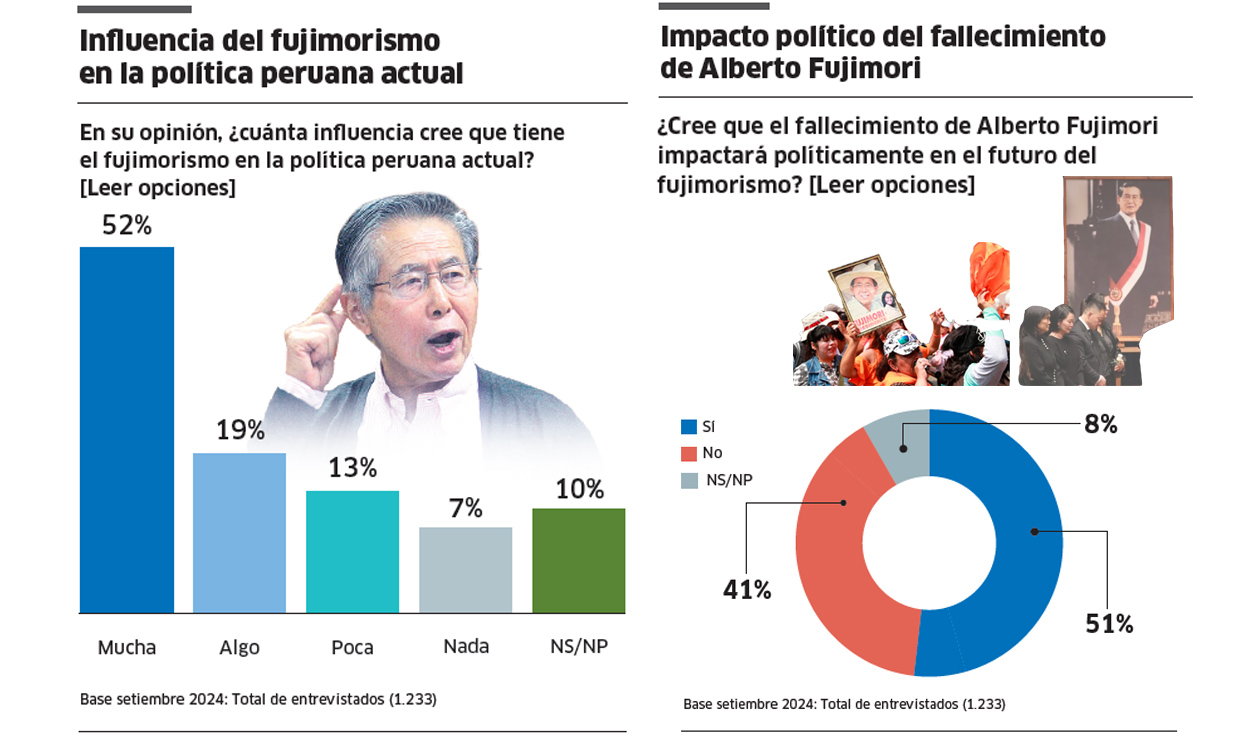
Almost half of Peru, 47% of those surveyed, have a mostly negative evaluation of Fujimori as a political figure. On the other hand, more than a third of the country, 37% of those consulted, have a mostly positive assessment. However, 12% make a positive and negative estimate in equal measure.
In the south and center of the country, it is more common for the evaluation to be mostly negative.
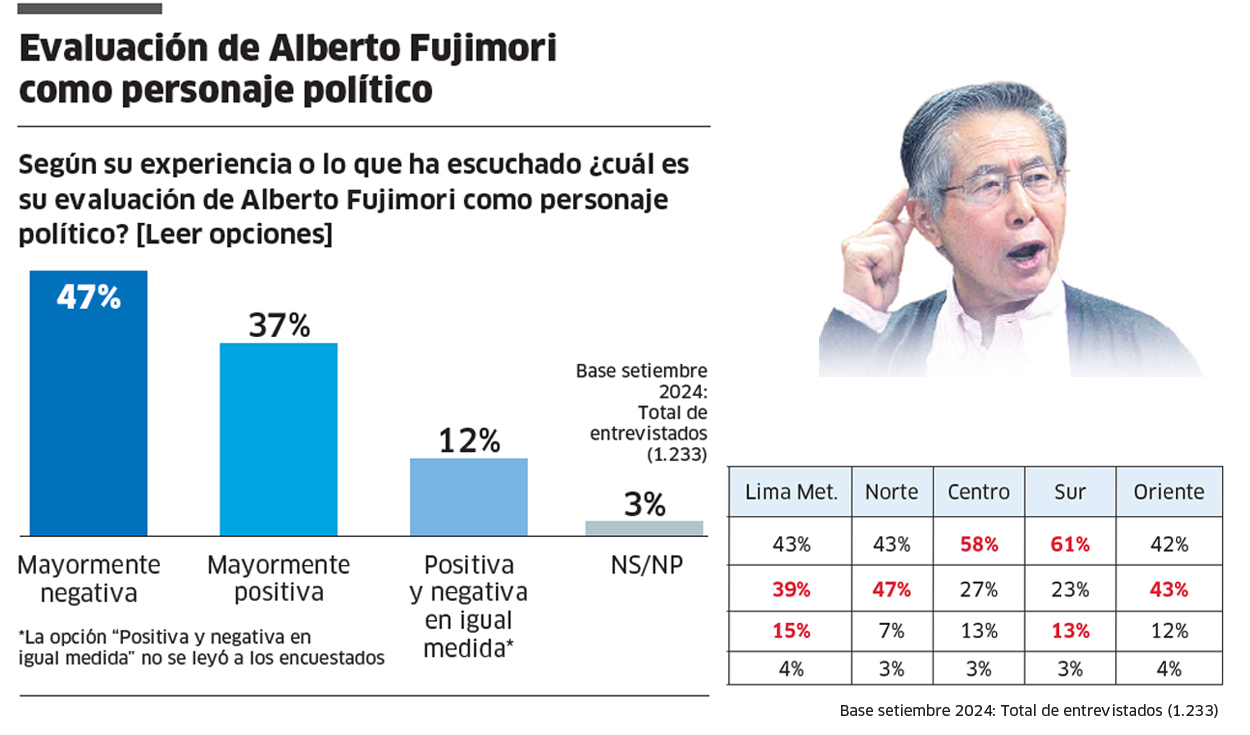
Regarding his government, the division is more homogeneous: for 44% it was mostly positive; For 42% it was mostly negative. Furthermore, for 12%, it had positive and negative things in equal measure.
In southern and central Peru, it is more common for them to consider it mostly negative.
20.8% believe that the most positive thing about his government was the fight against terrorism, 10.6% that the improvement of the economy and 8.1% that the works.
For 15.1%, the most negative thing was corruption, for 12.4% the violation of human rights and for 7.8% the privatization and sale of the country’s resources.
